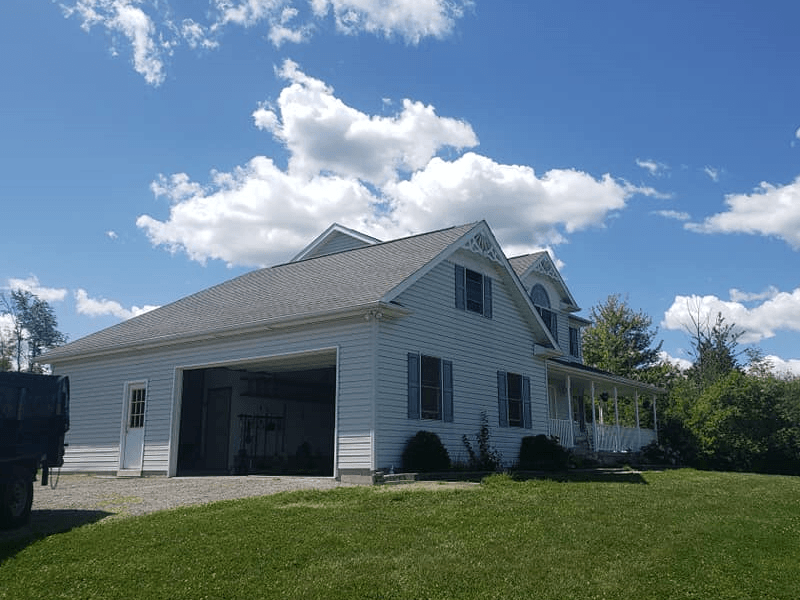Introduction
When it comes to roofing, many homeowners and business owners find themselves at a crossroads: should they hire licensed roofing contractors or certified roofing contractors? The distinction may seem subtle, but it can significantly impact the quality of work, safety, and warranty coverage. In this comprehensive guide, we will explore the nuances between licensed and certified roofing contractors, helping you make an informed decision for your next roofing project. Whether you're in need of emergency roof repair or a complete roof replacement, understanding these terms can lead you to the best roofing contractors available.
Understanding Roofing Contractors
What Are Roofing Contractors?
Roofing contractors are professionals specializing in the installation, maintenance, and repair of roofs. They handle everything from residential roofing services to commercial roofing services. Their expertise extends to various types of roofs, including flat roofs, metal roofs, shingle roofs, and tile roofs. Essentially, if it involves a roof over your head, a roofing contractor is likely involved.
Types of Roofing Services Offered
Roofing contractors provide a plethora of services tailored to meet different needs. Here’s a brief overview:
- Residential Roofing Services: Focused on homes and includes roof installation services and roof repair. Commercial Roofing Services: Tailored for businesses with specialized materials and requirements. Emergency Roofing Services: Rapid response for urgent situations like storm damage or leaks. Roof Maintenance Services: Regular inspections and upkeep to prolong roof life.
Licensed vs Certified Roofing Contractors
What Does It Mean to Be a Licensed Roofing Contractor?
A licensed roofing contractor has obtained the necessary licenses required by local or state authorities. This typically involves meeting regulatory standards through testing or educational requirements. Hiring licensed roofing contractors ensures compliance with building codes and safety regulations.
What Does It Mean to Be a Certified Roofing Contractor?
Certification often indicates that a contractor has undergone additional training or education beyond what is required for licensing. Certified professionals may have specializations in specific types of materials or systems—think metal roof repair or asphalt roof repair—that set them apart from their peers.
Key Differences Between Licensed and Certified
| Feature | Licensed Contractors | Certified Contractors | |-----------------------------|------------------------------------|-------------------------------------| | Regulatory Requirement | Required by law | Not always legally required | | Training | Basic industry knowledge | Specialized training in specific areas | | Insurance Coverage | Must carry liability insurance | Often offers extended warranties | | Scope of Work | General roofing services | May specialize in advanced techniques |
Why You Should Hire Licensed Roofing Contractors
Compliance with Local Laws
One major advantage of hiring licensed professionals is their adherence to local laws and regulations. This compliance ensures that your roofing project meets all necessary codes.
Quality Assurance
Licensed contractors are often subject to regular inspections and must maintain certain standards. This can offer peace of mind knowing that your project will meet high-quality benchmarks.
Liability Protection
In case of accidents during a project, hiring licensed roofing contractors often protects you from liability issues as they’re typically required to carry insurance.
Benefits of Choosing Certified Roofing Contractors
Specialized Expertise
Certified contractors often have specialized knowledge in certain materials or techniques. If you’re looking for someone who excels in tile roof repair or flat roof installation services, certification matters.
Extended Guarantees
Many manufacturers require contractors to be certified before offering product warranties. Choosing certified professionals may enhance your warranty options on materials used.
Trustworthiness
Certification usually means that the contractor has passed rigorous assessments which can serve as an indication of their reliability and trustworthiness.
Evaluating the Best Roofing Contractors
How to Find Reliable Roofing Contractors?
Finding reliable roofing contractors requires careful research:
Ask for Recommendations: Friends, family, or neighbors are great resources. Check Online Reviews: Websites like Yelp and Google Reviews provide insights into customer experiences. Verify Credentials: Always check licensing and certifications before making a decision.Questions to Ask Potential Contractors
When interviewing potential candidates:
- Are you licensed and insured? Can you provide references? Do you offer warranties on your work? What’s included in your estimate?
Navigating the World of Licensed vs Certified Roofing Contractors: Making Your Choice
Choosing between licensed vs certified roofing contractors ultimately depends on your specific needs:
If you're mainly concerned about compliance with local laws—like when dealing with new construction—opt for licensed contractors. For specialized projects requiring advanced techniques—like hail damage roof repair—look for certified professionals who possess relevant expertise.Cost Considerations in Roof Repair & Replacement
Understanding Roof Repair Costs
The cost associated with roof repairs can vary widely based on several factors:
- Type of damage Roof material Labor costs Geographic location
Average costs might range anywhere from $300 for minor repairs up to several thousand dollars for extensive damage.
Getting Accurate Roof Repair Estimates
To ensure you receive fair estimates:
Obtain multiple quotes from different companies. Make sure each quote outlines labor costs, materials used, and timelines. Verify whether any emergency roof leak repair costs are included if applicable.Common Types of Roof Repairs
Emergency Roof Leak Repair Services
If your home suffers from sudden water intrusion due to leaks, immediate action is vital! Emergency roof leak detection can save you thousands in potential water damage repairs down the line.
Signs You Need Emergency Repairs
- Stains on ceilings Dripping water Missing shingles after storms
Routine Roof Inspections & Maintenance Services
Regular inspections can identify issues before they become serious problems:
Schedule annual inspections after severe weather events. Look for signs like cracked flashing or sagging spots indicating underlying structural issues. Regular maintenance helps prolong lifespan while reducing overall replacement costs significantly!What Happens During a Roof Inspection?
During a professional inspection:
Inspectors evaluate visible areas (e.g., shingles). Check internal structures (e.g., attic space). Document any findings along with recommendations moving forward (repairs/upgrades).This comprehensive approach aids homeowners by offering clarity around necessary actions!

FAQ Section
1. What’s the difference between a license and certification?
Licensing is legally required by state regulations; certification signifies additional training or expertise beyond basic roofing contractors licensing requirements.
2. How do I know if my contractor is insured?
Request proof of insurance directly from the contractor before beginning any work; it should cover liability as well as worker's compensation plans if injuries occur on-site .
3 . Is it necessary to get multiple estimates?
Yes! Multiple estimates allow comparison shopping ensuring value-for-money while finding trustworthy providers suited specifically toward individual needs/projects!
4 . Can I perform my own repairs instead?
While DIY repairs may save money initially they could lead costly mistakes downline; hiring professionals ensures quality work adhering safety protocols thus safeguarding investment longevity!
5 . What should I do if I suspect storm damage?
Contact reputable local companies immediately following severe weather events; timely intervention minimizes further deterioration resulting higher restoration costs later-on!

6 . Are warranties important when choosing a contractor?
Absolutely! Warranties provide peace-of-mind guaranteeing workmanship/materials utilized meet expectations; reputable companies stand behind their efforts ensuring satisfaction throughout lifespan maintained products/services provided!
Conclusion
Navigating the world of licensed vs certified roofing contractors can feel overwhelming at times, but being informed makes all the difference when selecting reliable help! Always prioritize choosing experienced professionals who align closely against personal goals/projects regardless whether they hold licenses/certifications—the end result will surely reflect those choices made today! Remember that investing time upfront pays off dividends later down road where quality service becomes paramount ensuring peace-of-mind amid potential unforeseen circumstances arising unexpectedly without warning whatsoever!